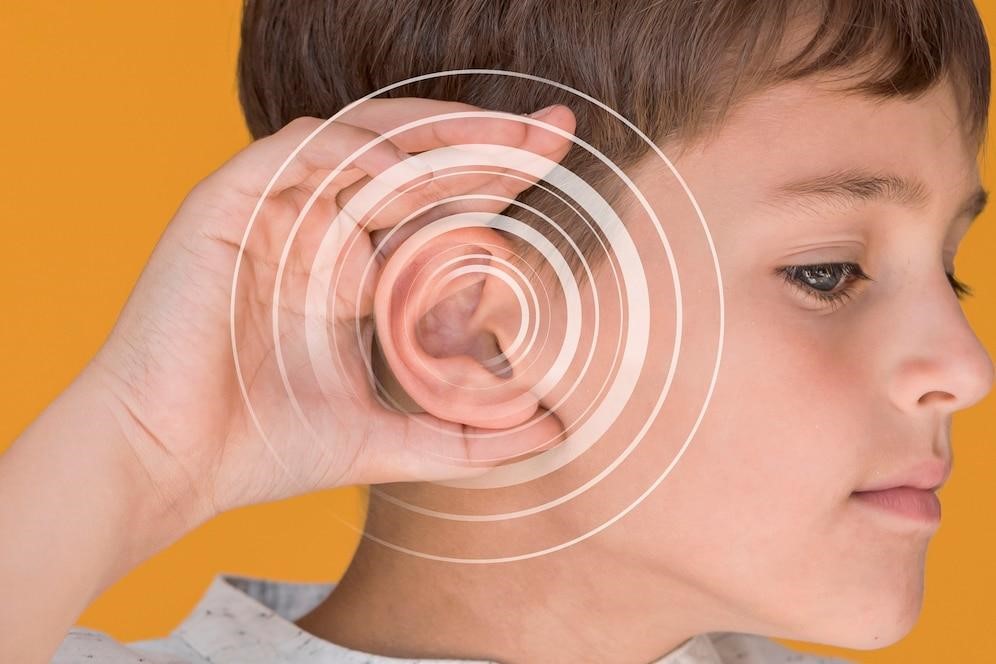
Navigating hearing aid options can be overwhelming, but we’re here to help at Better Hearing Solutions. Our experts offer personalized solutions tailored to your lifestyle, from cutting-edge technology to discreet designs. We aim to provide you with the support and information you need to make an informed decision. Our friendly approach creates a comfortable environment where you can openly discuss your concerns. Let us enhance your hearing and improve your quality of life. Explore Better Hearing Solutions for the best in hearing aid solutions.
Understanding Hearing Loss And The Need For Hearing Aids
Hearing loss, a widespread issue affecting millions globally often stems from various causes, such as aging or exposure to loud noises. This condition can significantly disrupt daily life, hindering communication and social interactions.
Fortunately, hearing aids in Southern Maine have a solution. These small yet powerful devices play a crucial role in assisting individuals with hearing loss by amplifying sound. By capturing, processing, and delivering amplified sound to the ear, they help restore auditory function.
What sets these aids apart is their personalized approach. In Southern Maine, specialized hearing aids are meticulously tailored to meet the unique needs of each individual. With ongoing advancements, these aids have evolved to be discreet, comfortable, and highly efficient, seamlessly enhancing hearing without causing disruptions to one’s lifestyle.
Types Of Hearing Aids Available
There are various hearing aids, each suited for different needs and preferences. Here are some standard options:
- Behind-the-Ear (BTE): These are worn behind the ear and are suitable for mild to profound hearing loss. They are durable, powerful, and flexible.
- In-the-Ear (ITE): Custom-made to fit the ear’s outer portion, ITE aids are for mild to severe hearing loss. They offer features like volume control and directional microphones.
- In-the-Canal (ITC) and Completely-in-the-Canal (CIC): These smaller and discreet devices fit partially or entirely inside the ear canal, making them less visible. They’re for mild to moderate hearing loss.
- Receiver-in-Canal (RIC) and Receiver-in-the-Ear (RITE): Similar to BTE, the speaker is placed inside the ear canal for a natural sound experience. These devices are for mild to moderate hearing loss.
Consulting a hearing healthcare professional is crucial to determining the best type for your needs.
Factors To Consider When Choosing A Hearing Aid
Choosing the right hearing aid is crucial for a positive experience. Consider:
- Degree and Type of Hearing Loss: Assess severity and type for an appropriate match.
- Lifestyle and Communication Needs: Opt for noise-canceling features in active or noisy environments.
- Cosmetic Preferences: Choose a style, size, and color that feels comfortable.
- Budget: Set a range and explore financing or insurance options.
- Trial Period and Warranty: Ensure a trial period and review warranty details for peace of mind.
Consult with a hearing healthcare professional to find the perfect fit.
The Latest Advancements In Hearing Aid Technology
Recent advancements have revolutionized hearing aids, enhancing their effectiveness and user experience. Here are vital innovations:
- Digital Signal Processing: New algorithms analyze incoming sounds, customizing amplification for more explicit speech and reduced background noise.
- Bluetooth Connectivity: Many models now connect wirelessly to smartphones and other devices, allowing direct audio streaming for added convenience.
- Rechargeable Batteries: Instead of traditional disposable batteries, modern hearing aids feature rechargeable options, reducing hassle and waste.
- Artificial Intelligence (AI): AI-powered algorithms adjust real-time settings based on user preferences and environmental cues, optimizing the listening experience.
These innovations have transformed hearing aids, providing more transparent sound, enhanced connectivity, and improved user satisfaction.
How To Properly Care For And Maintain Your Hearing Aids
Proper care and maintenance are essential for your hearing aids. Here are some tips:
- Clean them regularly: Use a soft, dry cloth to remove debris or wax. Avoid water unless recommended.
- Keep them dry: Remove them before showering or swimming. Store in a dehumidifier overnight.
- Avoid extreme temperatures: Don’t leave them in hot cars or expose them to extreme heat or cold.
- Handle with care: Be gentle and avoid dropping them.
- Schedule regular check-ups: Visit your audiologist for maintenance and adjustments.
Following these tips will help extend the life and performance of your hearing aids.
Tips For Adjusting To Wearing Hearing Aids
Adjusting to wearing hearing aids may take some time and patience. Here are some tips to help you ease the transition:
- Start in a quiet environment: Wear your hearing aids in a peaceful setting to allow your brain to adjust to the amplified sounds.
- Gradually introduce more challenging listening environments as you become more comfortable.
- Practice active listening: Engage in conversations and listen to different sounds to help your brain adjust to the new auditory input.
Reading aloud or listening to audiobooks can also be helpful in the adjustment process. - Be patient: It takes time for your brain to adapt to the new sounds you hear.
Keep going if things sound different or overwhelming at first.
With consistent use, your brain will gradually adjust, and the sounds will become more natural. - It can be beneficial to seek support in a support group or connect with others who have experienced a similar experience.
Share your concerns, ask questions, and learn from their experiences.
Adjusting to hearing aids is a journey, and everyone’s experience is unique. Be patient with yourself and celebrate the small victories along the way.
Conclusion: Embracing A Better Hearing Experience
Navigating the world of hearing aids may seem overwhelming. Still, with the proper guidance and support from audiologists or hearing healthcare professionals, you can find a solution that enhances and improves your hearing. They can help assess your hearing needs, recommend suitable devices, provide fitting and adjustments, and offer ongoing support to ensure your hearing aids meet your expectations and lifestyle.